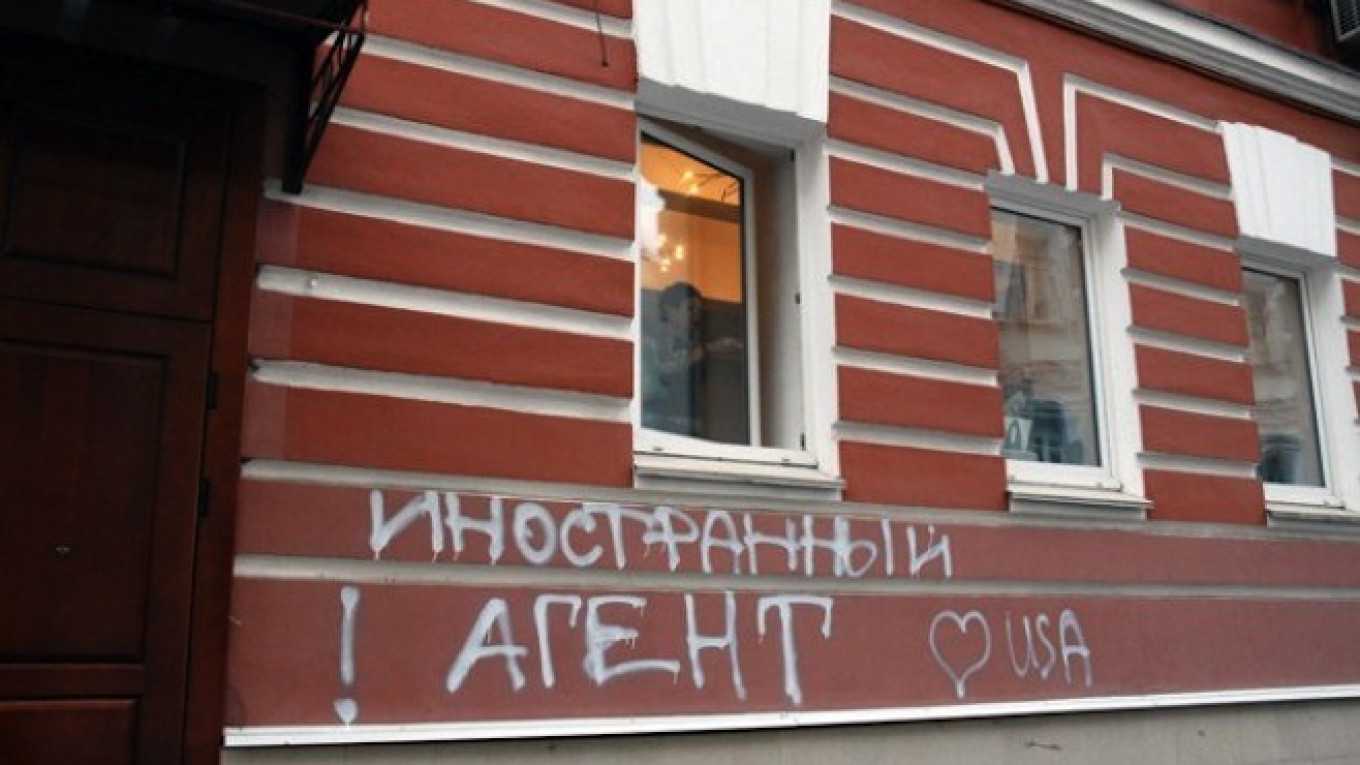The Prosecutor General's Office said it identified 24 nongovernmental organizations as "foreign agents" last year, in line with a law that rights groups say is intended to limit dissent in Russia.
In particular, a report by Prosecutor General Yury Chaika singled out human rights group Public Verdict Foundation for the legal support it gave to defendants in the so-called Bolotnaya case, brought against participants in the May 2012 anti-Kremlin protests, Interfax reported Monday.
The foundation, which received funding from the U.S., offered assistance to organizers to ensure public demonstrations took place, the report said, in comments carried by Interfax. The foundation also helped "shape public opinion about the excessive actions of the government in curtailing violations" during the Bolotnaya protests, the report noted.
In addition to the 24 groups required to register as "foreign agents," prosecutors identified 215 NGOs, which received funding of more than 6 billion rubles ($167.9 million) from abroad between 2010-2013 and which appeared to display signs of political activity.
A controversial law passed in 2012 requires all human rights groups and NGOs that receive foreign-backing and engage in "political activity" to register as "foreign agents" — a term that many rights groups have said would make them targets of persecution.
One major Russian human rights group, St. Petersburg-based rights organization ADC Memorial, is awaiting liquidation under the new law for refusing to register as a "foreign agent" with the Justice Ministry.
On the day Memorial's liquidation was announced last week, State Duma Deputy Andrei Lugovoi proposed amendments to the "foreign agent" law that would further restrict NGOs and allow the Justice Ministry to decide for itself which noncommercial organizations should be deemed "foreign agents."
In a speech to the Federal Security Service earlier this month, President Vladimir Putin said Russia faces a threat from NGOs "serving foreign national interests." He told his security chiefs to ensure that Russia does not follow what he said was Ukraine's example by letting the West use local civil rights groups to foment unrest.
So far, nearly all NGOs have refused to register under the "foreign agents" law, saying that accepting the label would invite persecution and undermine their credibility.
See also:
A Message from The Moscow Times:
Dear readers,
We are facing unprecedented challenges. Russia's Prosecutor General's Office has designated The Moscow Times as an "undesirable" organization, criminalizing our work and putting our staff at risk of prosecution. This follows our earlier unjust labeling as a "foreign agent."
These actions are direct attempts to silence independent journalism in Russia. The authorities claim our work "discredits the decisions of the Russian leadership." We see things differently: we strive to provide accurate, unbiased reporting on Russia.
We, the journalists of The Moscow Times, refuse to be silenced. But to continue our work, we need your help.
Your support, no matter how small, makes a world of difference. If you can, please support us monthly starting from just $2. It's quick to set up, and every contribution makes a significant impact.
By supporting The Moscow Times, you're defending open, independent journalism in the face of repression. Thank you for standing with us.
Remind me later.






